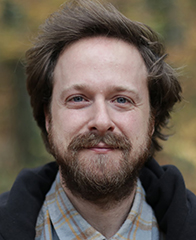Theoretical Evolutionary Ecology
Within species, individuals vary in physiology, morphology, and behavior. Such intraspecific diversity of form and function plays a central role in evolution and ecology, as well as in applied biological sciences such as conservation and medicine. Striking examples of intraspecific variation include the stable coexistence of individuals with highly differentiated phenotypes, such as the distinct characteristics of males and females in many species and different resource, dispersal, or mating morphs. Despite sharing a largely common environment and gene pool, these morphs can display differences across nearly all aspects of the phenotype, from gene expression to behavior and life history. Studying such polymorphisms offers fundamental insights into the causes and consequences of variation, with broad implications for understanding speciation and biodiversity.
In our lab, we design and analyse mathematical and computational models to investigate the ecological and genetic bases of polymorphism in complex traits. Our models integrate multiple branches of theoretical evolutionary biology, including quantitative genetics, population genetics, kin selection, and game theory. Rather than focusing on a specific organism, our approach is primarily conceptual, aiming to generate general, testable predictions about the ecological conditions that promote differences between individuals and the genetic bases of these differences. Specific projects include exploring the emergence of polymorphism within spatially structured ecological communities, the coevolution of polymorphic traits with their genetic architectures under non-random mating, and the joint evolution of males and females. These projects, situated at the intersection of ecology and evolutionary biology, examine the interplay between genes, the phenotypes they encode, and the ecological interactions mediated by these phenotypes within and between species.
Group leader
Graduate students
If you have experience with mathematical modelling and are interested in evolution and ecology, feel free to contact us to discuss funding opportunities for a Master's project, PhD or postdoc.

